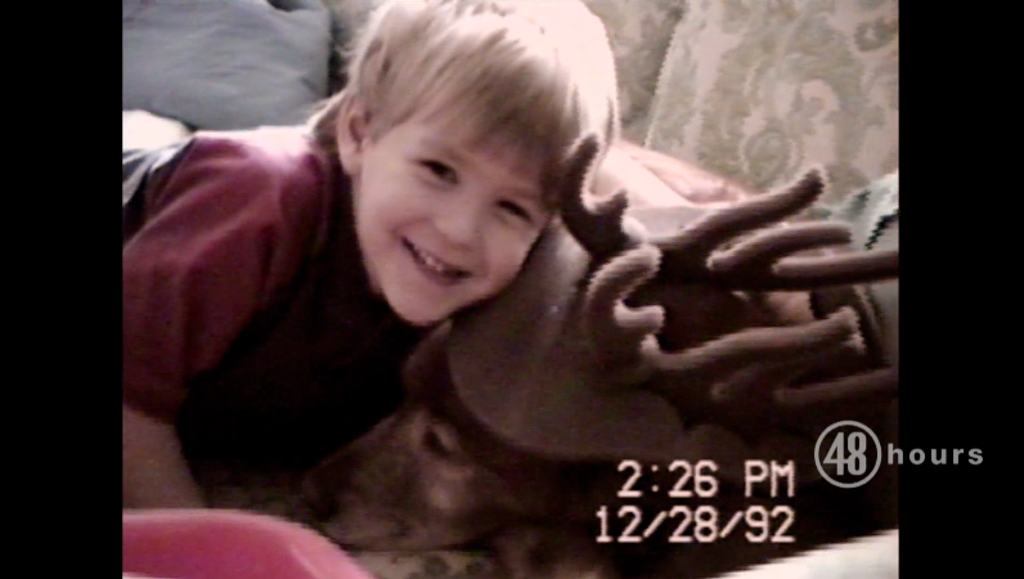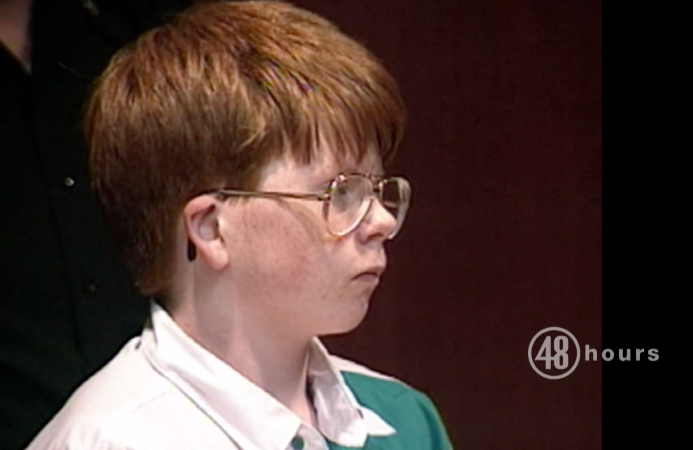
The parents of Derrick Robie, who was murdered in 1993 at the age of four, have spoken out following the release of their son’s killer from prison after 28 years.
In an interview with CBS News’ 48 Hours, scheduled to air on 26 March, Doreen and Dale Robie recalled their painful journey in the three decades since their son’s murder in the village of Savona, New York.
The little boy was killed by Eric Smith, then 13 years old, who was dubbed the “freckle-faced killer” in the media at the time.
A parole board decided in November to release Smith. Fearing he would return to the community of Savona, residents staged a peaceful protest.
“I wasn’t so much worried about us as I was everybody else,” Ms Robie told the show.
“I just knew where a lot of people in town in the village stood,” Mr Robie added.
Smith was kept in prison until he could find approved housing. In February, now aged 42, he was released and moved to the Queens borough of New York City.
“I don’t let him take space in my head,” Ms Robie said. “I do not focus on where he is, what he’s doing. … ‘cause I don’t care. As long as he’s not near friends and family.”
Savona is a village of about 800 people near New York’s Finger Lakes. On 2 August 1993, Ms Robie had allowed her son to walk to a summer camp in the nearby park.
“It’s the first time I ever let [Derrick] go anywhere alone,” says Ms Robie. “And it was one block down, same side of the street. … He gave me a kiss and I said, ‘I love you.’ He says, ‘I love you, Mom.’ And he went hopping off the sidewalk.”
Derrick was lured into a wooded area by Smith on the promise of showing him a shortcut. He then strangled and beat the boy to death with rocks.
After being told her son had not arrived at the park, Ms Robie reported him missing. Hours later, his body was found in the nearby woods.

The small community initially assumed the killer was a stranger. However Marlene Heskell, a family friend of the Smiths, became increasingly concerned about 13-year-old Eric’s behaviour. He had asked what would happen if the killer was another child, and recalled that he had gone to the park near where Derrick’s body was found.
She and Smith’s mother took him see the police and he seemed to enjoy talking about the murder. At first he denied seeing Derrick, but later confessed, saying: “I’m sorry, Mom. I’m sorry. I killed that little boy.”
Smith was tried as an adult and in August 1994, aged 14, he was sentenced to nine years to life in prison — first at a juvenile detention centre and then in a prison for adults after he turned 21.
His first parole hearing was in 2002 and was denied. But what followed for the Robie family was having to relive that day in 1993, every two years, for almost two decades at subsequent parole hearings.
“It upsets me, the fact that we have to beg to keep this killer behind bars,” said Ms Robie on one such occasion.
“They could decide that well, now he’s done his time and we’re going to let him go … It scares the hell out of me.”

When he was 24, Smith said that he had killed Derrick after years of being relentlessly bullied. He told a parole board in 2004 that he did it “because -- instead of me being hurt, I was hurting somebody else”.
He also admitted that if he hadn’t been caught he probably would have done it again, confirming prosecutors’ beliefs that he was potentially a serial killer in the making.
Smith has undergone years of therapy and has since said that his anger wasn’t directed at Derrick but on others that picked on him, and that was what he saw in his head when he killed the four-year-old.
In October 2021, he was freed after his 11th parole board hearing. Smith had told the panel that he had plans to be an electrician or carpenter, had been working on a college degree in crusade evangelism, and even had a fiancée.
“The 13-year-old kid that took [Derrick’s] life… is not the man sitting in front of you talking … if you were to give me the chance, I would not only prove that I’m not a threat,” he told the board. “I would definitely be an asset to society.”







